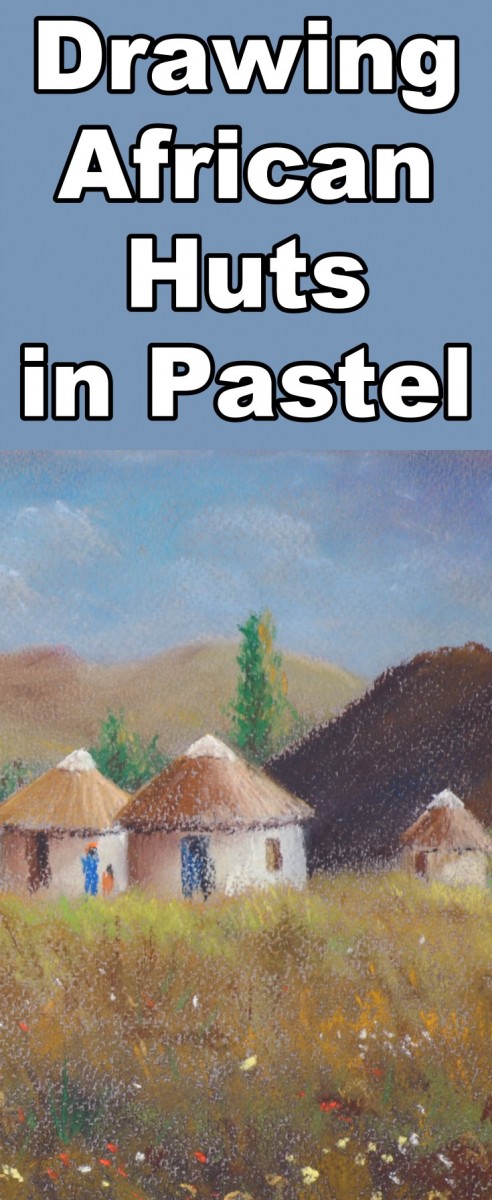Template
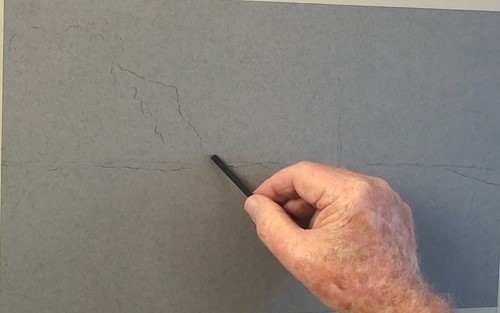
Don’t draw on the pastel paper with a graphite pencil. The reason for this is that the graphite is slightly “oily” as well as leaving a smooth line where the pastel dust will not be able to grip on. This will always leave unsightly lines in your work.
Drawing the outlines
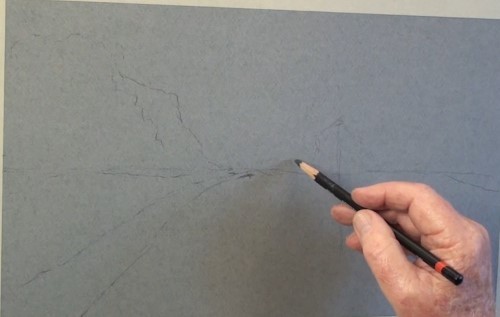
In this lesson use a charcoal stick or pencil to draw the main lines needed to guide your pastels. With charcoal it is very easy to rectify any mistakes.
Pastels used in this painting

This is a normal Munyo Pastel Set that can be bought from most stationery shops. It really does not matter which make you begin with. Look for the soft type.
Paint the sky

Loosely stroke in some mauve to the sides and light blue in the centre and blend in with the finger.
Paint the clouds
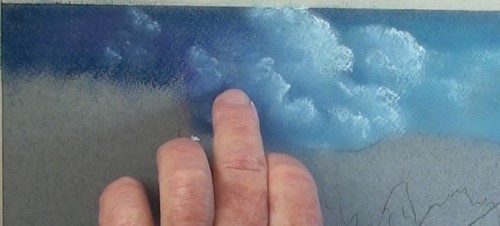
The light will be from the right side. With a soft white, paint in the clouds. Notice that the highlights on the clouds are on the billows as shown. Some clouds do not have highlights.
Distant hills
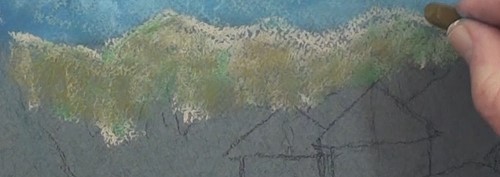
With some yellow, such as Naples yellow and a light green, begin this hill.
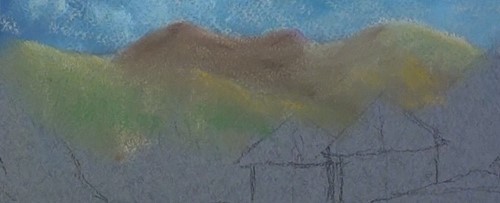
Bring in some light brown to avoid the hill being an even colour. With a light yellow add in the sun highlights
Distant trees
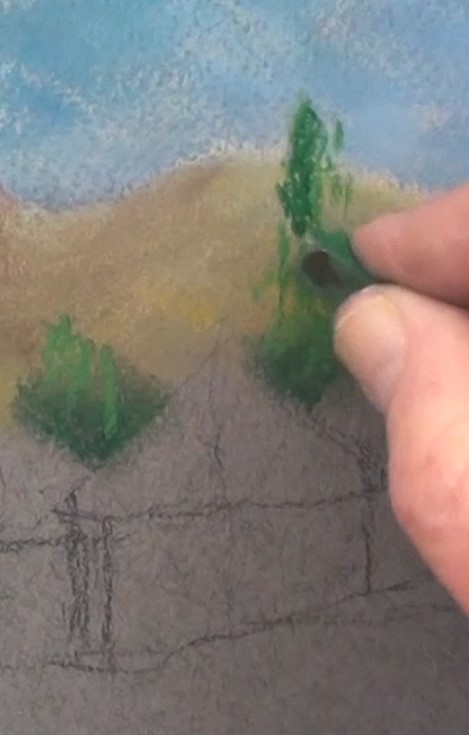
Block in a patch of dark green. This is the underpainting. We are painting a plantation instead of individual trees. With a dark brown darken up the lower parts to add contrast. The lighter colours we will later add next to it. Then with a light green pastel stick just stroke in a few lines to start the impression of trees in sunlight.
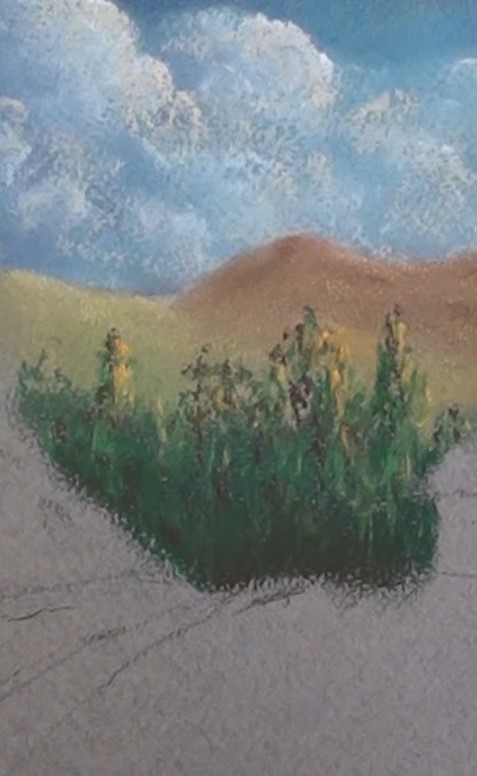
With the dark brown, green, and yellow pastel paint in the closer trees. Don’t try to paint individual leaves. They are too far away to be able to see them.
Hill in shadow
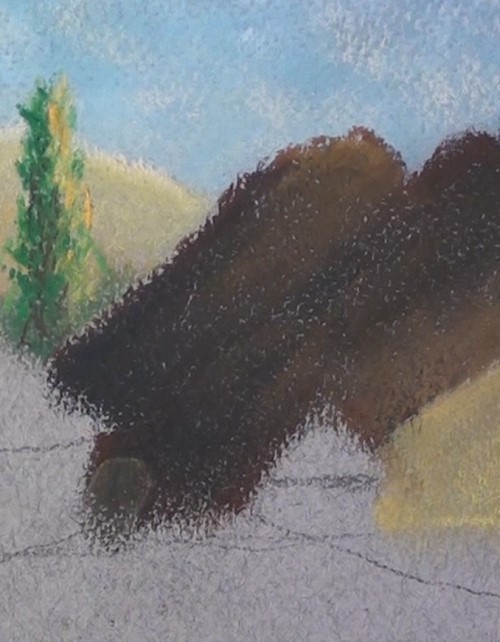
Block in the hill that is in shadow. Use a dark brown and a touch of yellow ochre for the lighter top areas. Block in the lower small hill with yellow ochre.
Nearby hill
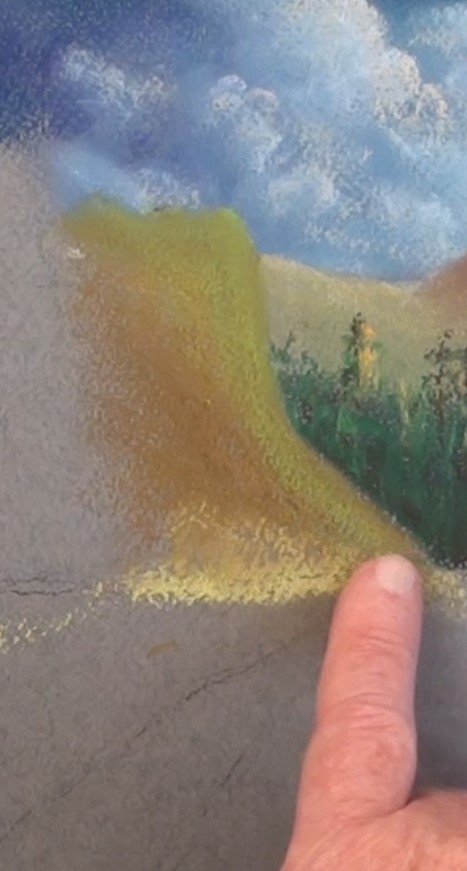
Add a light green along the profile. Be careful to make the top higher than the distant hills otherwise it will look as if it is part of those hills. With a light brown add a light layer to the side and gently blend as shown. Add some light yellow to the foot of the hill.
Nearby trees
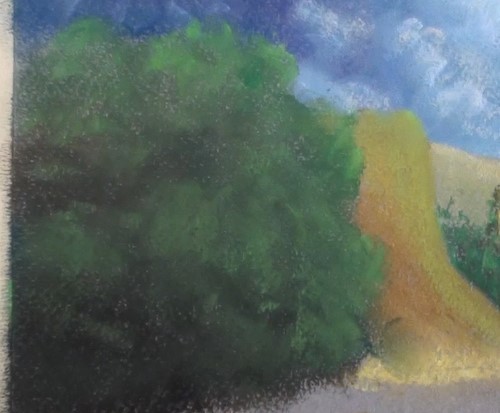
Block in the tree mass with dark green and darken the lower end with dark brown. With a light green pastel stick start to form the sun on some of the trees. Then blend in as shown. We are still only painting shapes and masses.
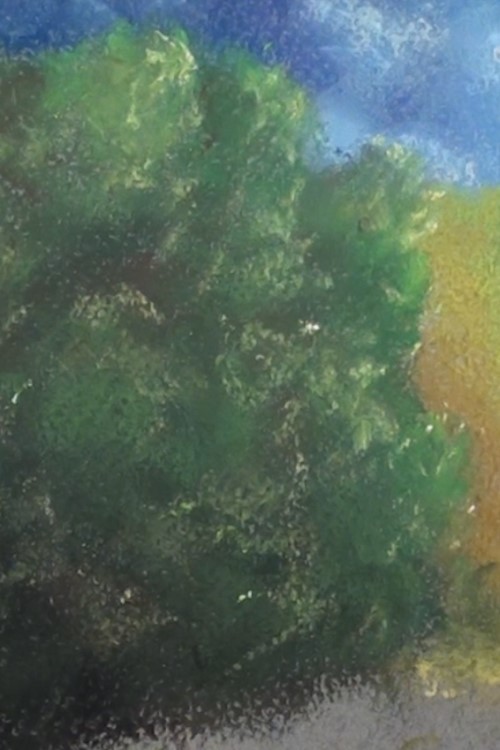
With a light yellow just lightly spot in some highlights for the tip of some tree branches. Don’t overdo the highlights.
Painting the field
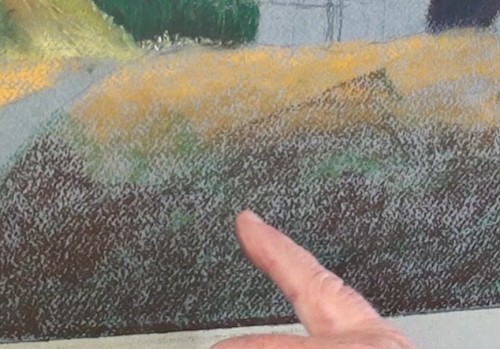
Add the small area of grasses in the distance. With a yellow such as Naples yellow, block in the sunlit area near the huts. The foreground is in shade from nearby trees that are out of sight. Stroke in a layer of light green and then overlay it with brown. Then blend.
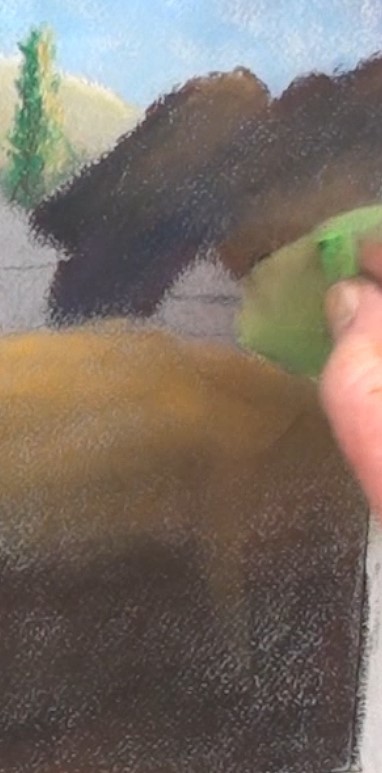
Highlight the small hill on the right.
Painting the huts

Outline the roofs with yellow and then add the shadow area with a raw sienna colour. Then lightly work a yellow over the top in line with the thatching. Don’t blend, keep it rough.
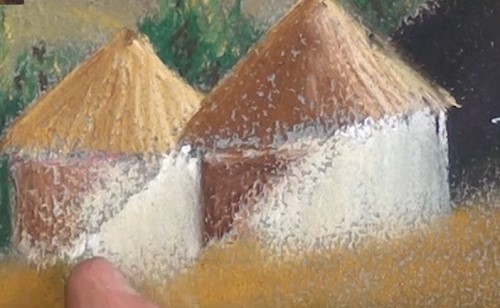
Complete the roofs and use soft white for the sunlight on the white-washed walls. Note the curve due to the rounded walls. For the wall shadow first add a yellow layer, then some violet and then raw sienna, and blend together.
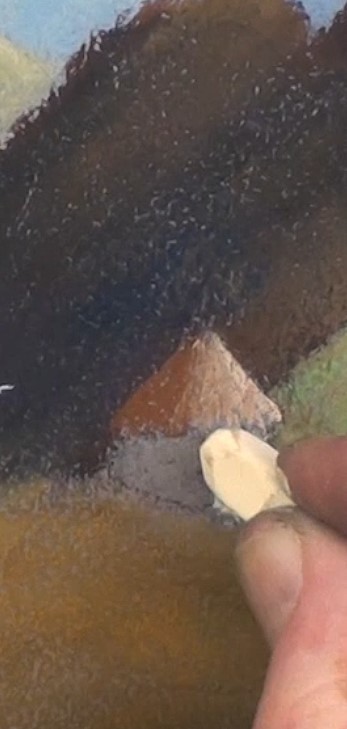
Add the concrete tops in white. Add the doors. Don’t make them too wide. Add the two figures and finish the third rondawel .
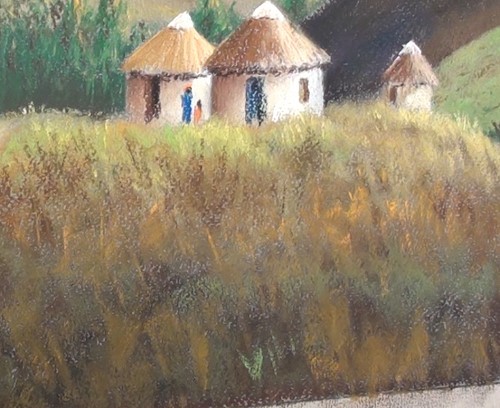
With some yellow, and with vertical movements add the distant grass up against the lower section of the huts. With a light green do the same but a bit lower down. Fill in the foreground with random strokes of brown, dark green, light green, yellow ochre as shown. Dot in some white, yellow and orange for some flowers.
Paint the road
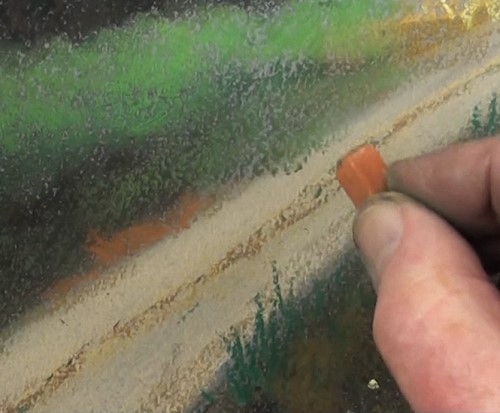
Lay down some white and a slight touch of yellow ochre and blend will. Touch in the centre strip of grass and small shrubs. Darken up the bottom section of the road. Block in the grassy section on the left of the road as shown. Highlight with some yellow and add the grasses. Also add some flowers similar to the main field for optical balance.
Final touchups
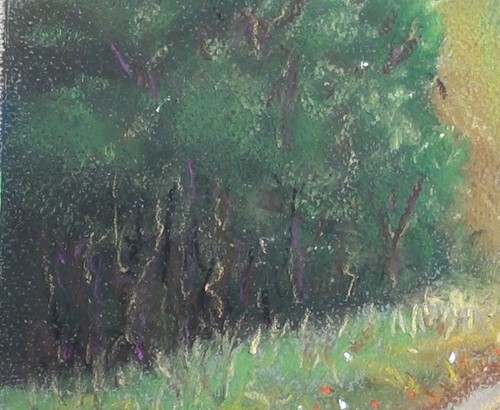
Add, in a simplistic manner, some tree trunks and their highlights. Notice that the road centre section get lighter and fades away into the distance. This add to the linear perspective of the painting.
Final drawing
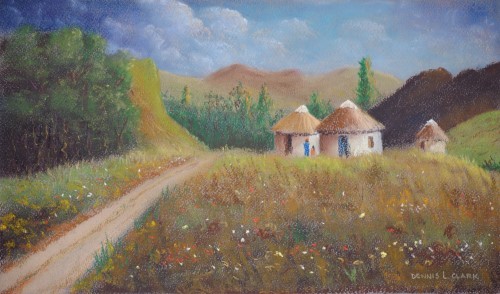
Click the button below to view the real time follow along version of this class:
Pin Me
